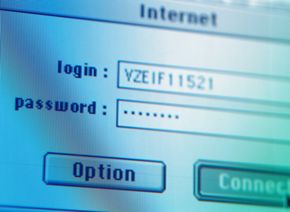Instant messaging security starts with your screen name. Creating a screen name is a fun, creative process, and everyone wants his or her screen name to say something unique. But try your best to avoid including any personal information in your screen name. This is especially true for teens, who are the most vulnerable to online predators.
Some words to avoid including in your screen name:
- Your real first or last name (example: jennysmith)
- Your age (example: jenny16)
- Your geographical location (example: jennyNYC)
- The name of your high school or college (example: jenny_centralHS)
Some alternative ideas for creating a screen name:
- Your hobbies (example: IMaddict2008)
- Your pet's name (example: frecklesmom)
- Your favorite musician, sports team, actor, food, etc. (example: rihanna4ever)
Once you've created a screen name, treat it like a secret identity. Don't give it out to just anyone. A screen name should be even more private than an e-mail address. Don't publish it on public Web sites where it's easy for phishing programs to record your screen name and send you spam messages. Also try to avoid linking your screen name to your e-mail address, or vice versa.
When you were a kid, there was one unbreakable rule: "Don't talk to strangers." The same is true for IM security. The best way to safely use IM is to only chat with people you know. If someone you don't know tries to IM you, don't accept the invitation. If they have a legitimate reason to get in touch with you, they can send an e-mail or call.
If for some reason you decide to chat with someone on IM that you don't know, or don't know very well, don't open up any files or photos that are attached to a message. This is an easy way for a malicious hacker to load a virus, worm or spyware onto your computer.
Even if you're chatting with a friend, check the name and file extension of all attached files before opening them. If your friend's computer is infected with a virus, it could automatically send out copies of the virus to all of your friend's IM buddies. Particularly avoid opening any suspicious .txt or .exe files.
Don't include any highly personal or private information in an IM message. Instant messages, like e-mail, are relatively easy for a hacker to intercept. All of the messages need to pass through a central server (AOL, Yahoo!, Google, et cetera) and can be stolen at various weak points in the network. Also, many IM programs save the logs of an IM session for future reference. This can be useful, especially if you use IM in a work setting, but it can also pose a security risk. If someone gains access to your IM logs, they can use your old messages to collect highly personal or highly sensitive information.
Most IM programs include status messages that allow those on your buddy or contact list to know if you're available to chat. Be careful about letting people know too much about where you are and what you're doing. Instead of saying, "Gone out to Burger King," just use a generic "Busy." This way you don't tip off a potential stranger that you've left your home or office and are in a particular outside location.
The last rule of IM is to be extremely careful when meeting someone in real life who you only know through IM. Take a friend or parent along and meet in a public place during the day, like a café or a busy park.
Now let's look at what can happen if you don't maintain IM security.


